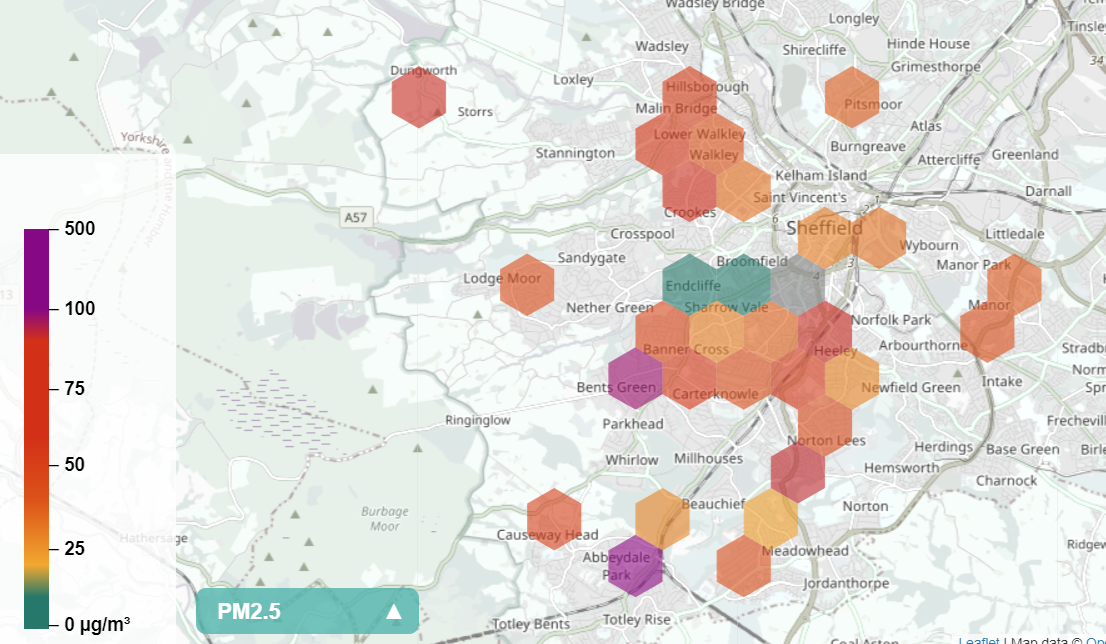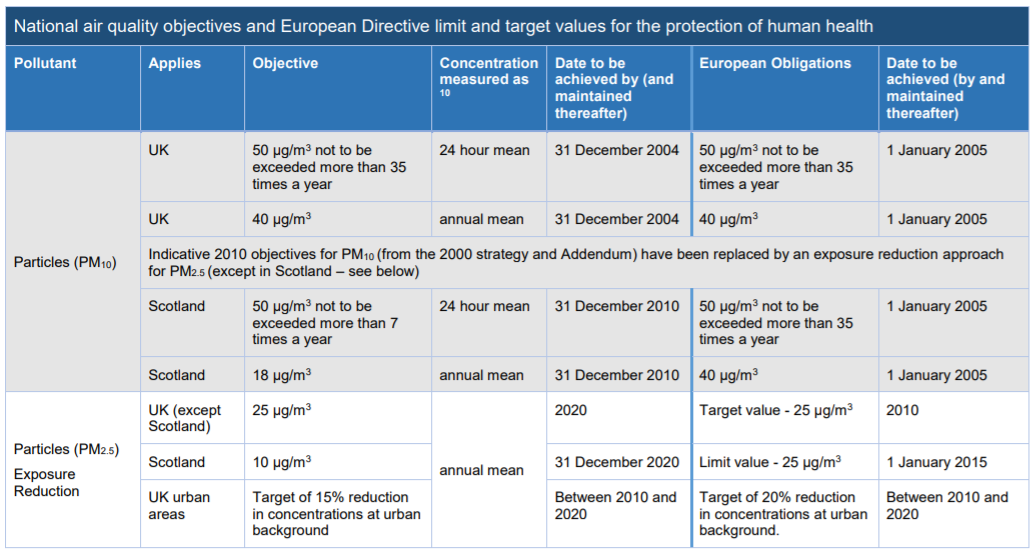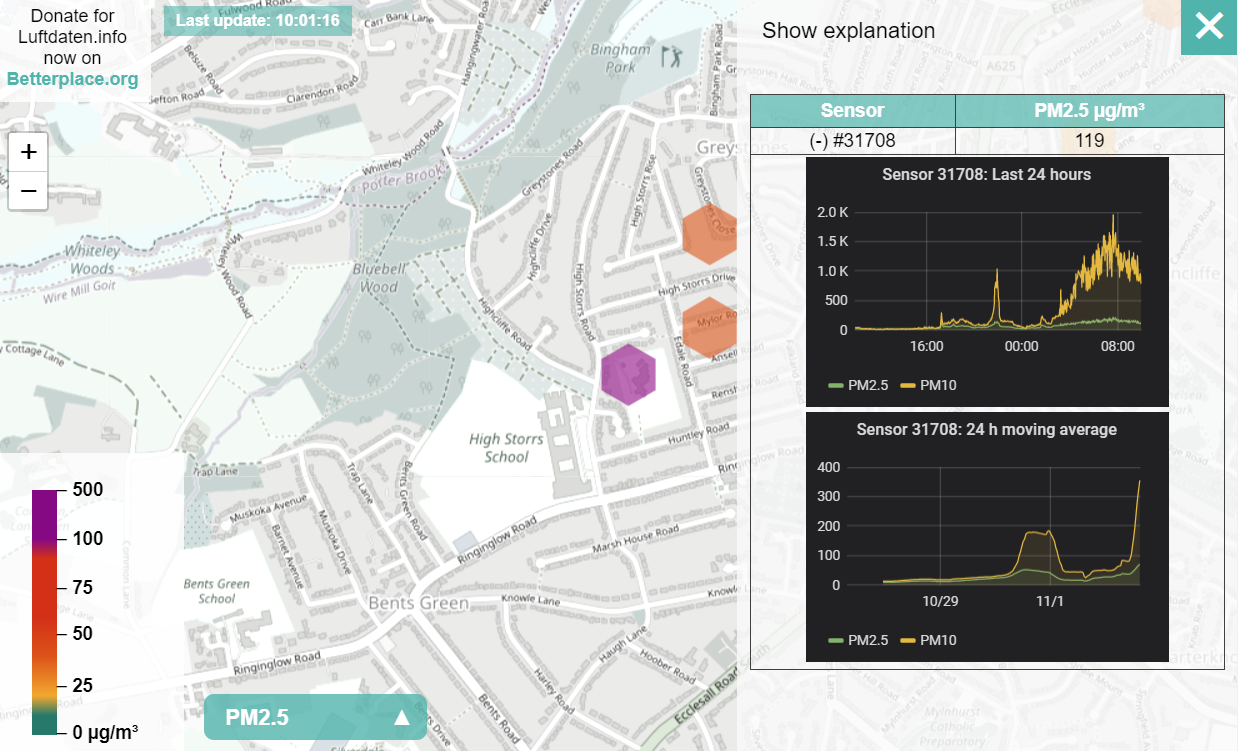Without wanting to rain on your bonfire, let's start off with a fact:
Fireworks and bonfires reduce visibility and increase air pollution.
Photo by Lenny Acompanado / Unsplash
Here in the UK, we celebrate a failed attempt to blow up the Houses of Parliament (aka Guy Fawkes' Night, or Bonfire Night) by burning a "Guy" on a bonfire and letting off fireworks.
Last year, Sheffield's After Dark fireworks display was all but obscured by it's own pollution, and as one viewer put it - "It was the best fireworks display I've ever heard."
The air pollution level reached 326 micrograms per cubic metre for the smallest particulate matter (shortened to PM2.5). It was the highest in the UK that night. For reference, the World Health Organisation guidelines state that the level should be an average of 10 annually, or 25 micrograms in 24 hours before it starts getting dangerous to health.
When bonfires burn and fireworks explode, they release gases and tiny bits of metals, soot, and other stuff. The tiny bits are called particulate matter (or PM for short). This adds to the pollution already in the air from other sources.
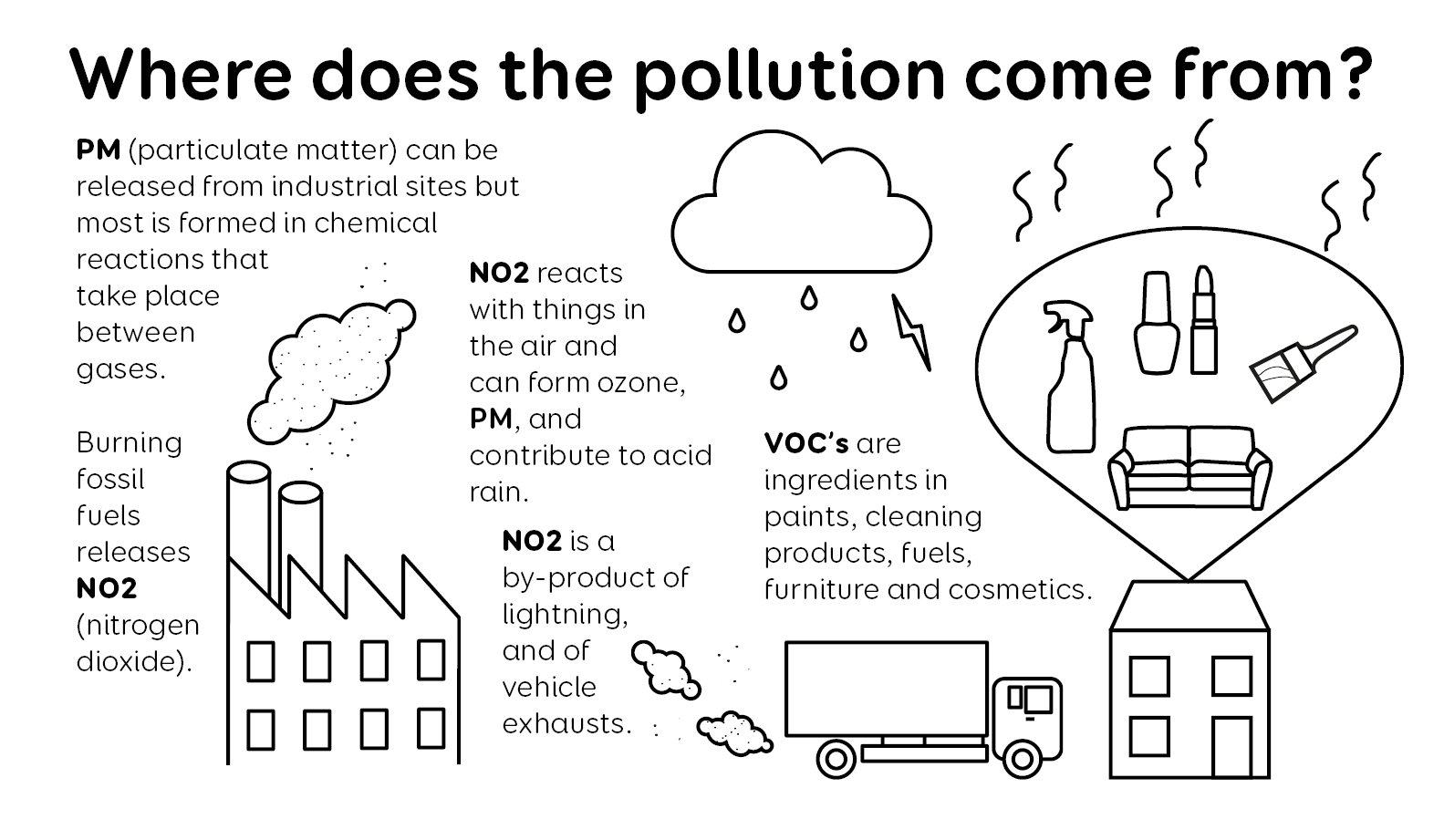
Check out Sheffield's current air pollution levels here.
At the time of writing, the school run was in progress and the pollution levels outside one secondary school in Sheffield were at 1003 for PM10 (the bigger particles) - this is a temporary peak and the average over 24 hrs drops, but it's still not what you want the kiddos to be breathing.
What can these little particles do?
The PM2.5 particles (the 2.5 refers to the size) can get in your lungs, and through there into your bloodstream. In the lungs, they can cause irritation, trigger asthma, and cause respiratory illness. Once in the bloodstream, they can cause heart problems.
The PM10 particles can also trigger lung diseases, asthma and other respiratory illnesses. Pollen and mould are also types of PM10 particles.
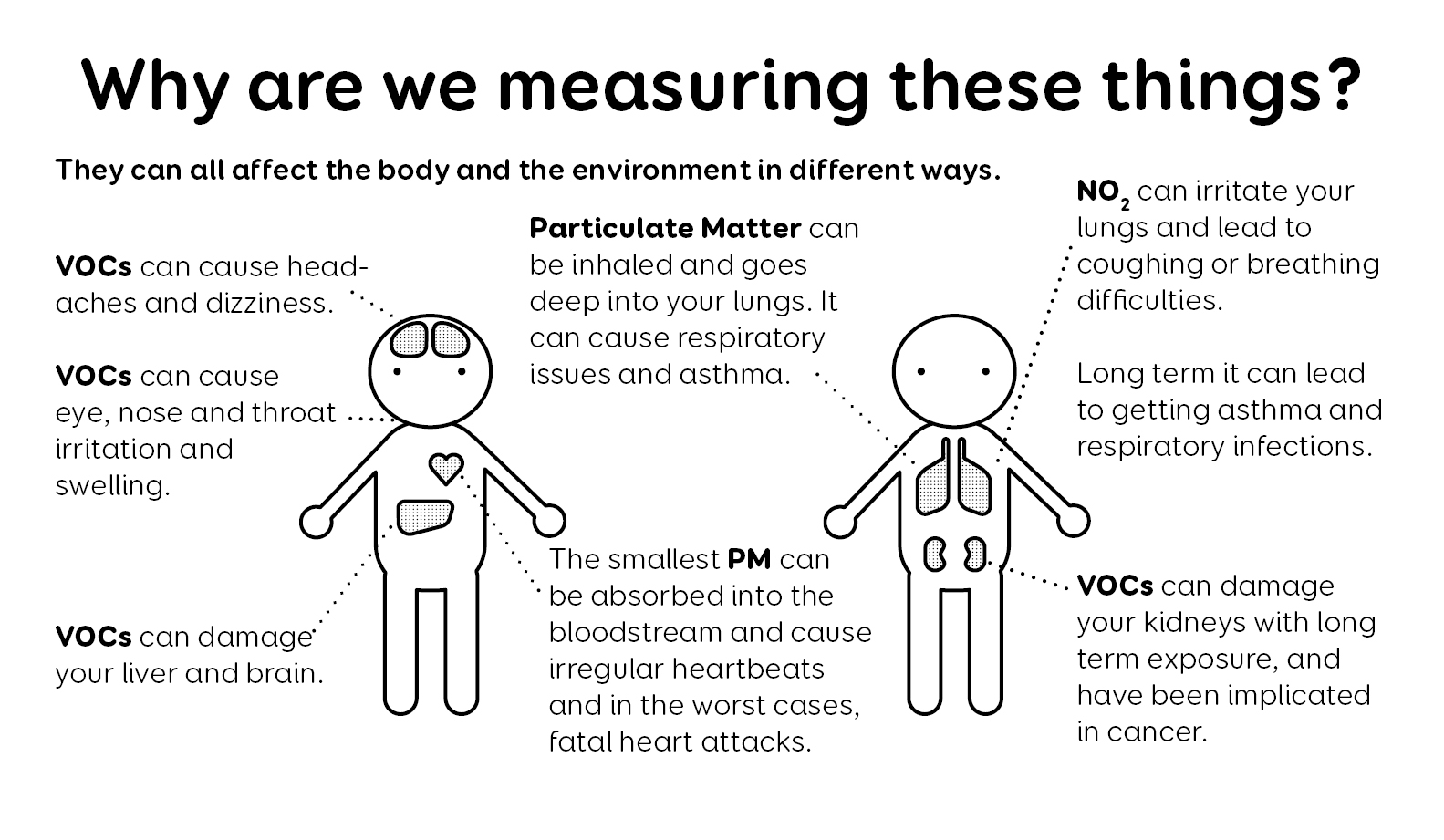
Is this pollution level even legal?
The EU set limits on air pollution that the UK was supposed to meet in two stages, by 2005 and 2010, but we're still breaching them. The EU took the UK (and France, Germany, Hungary, Italy and Romania) to court over the breaches last year, but the UK itself does not have its own direct laws on air quality.
EU Limit values are legally binding EU parameters that must not be exceeded. Limit values are set for individual pollutants and are made up of a concentration value, an averaging time over which it is to be measured, the number of exceedences allowed per year, if any, and a date by which it must be achieved.
The UK has been told it has failed to respect limit values, and failed to take appropriate measures to keep exceedance periods as short as possible.
How do I monitor my air quality?
First, head to Luftdaten (german for air-data) and see if someone already has a sensor in your area. You can zoom in and click on a sensor to see the current reading from it, and click on the reading to see a graph of the data. Here, clicking on the purple hexagon shows you the current reading from sensor 31708, and clicking on the sensor number shows you the graph for the last 24 hours.
You can change the type of pollution you're looking at by clicking on the green menu in the bottom left (the one here says PM2.5 with an arrow on) to select a different reading.
If they don't have one in your area, why not set up your own? We developed the Enviro+ board for just that, and we've written an example so you can get it sending data to Luftdaten within minutes. If you want to monitor the particulate matter you'll need a PM sensor too - it's like a little hoover that sucks air in and over a laser beam, which counts the number of particles of each size.
If you fancy going homebrew, there are LOTS of open source projects on air quality, and plenty of people willing to help with questions and setup. For example, here's the Luftdaten particle sensor instructions.
Should we even have fireworks?
As an individual, you can reduce the air pollution by not having your own fireworks display. There will almost certainly be a local community one you can attend. The same goes for bonfires.
Why not keep an eye on the air pollution in your area and see how it is affected by the Bonfire Night celebrations?
Sources / Further Reading:
https://www.who.int/en/news-room/fact-sheets/detail/ambient-(outdoor)-air-quality-and-health
https://twitter.com/CleanAirSheff/status/1059595642559967232
https://uk-air.defra.gov.uk/assets/documents/reports/aqeg/pm-summary.pdf
https://uk-air.defra.gov.uk/air-pollution/uk-eu-limits
https://uk-air.defra.gov.uk/assets/documents/Air_Quality_Objectives_Update.pdf
https://researchbriefings.parliament.uk/ResearchBriefing/Summary/CBP-8195


